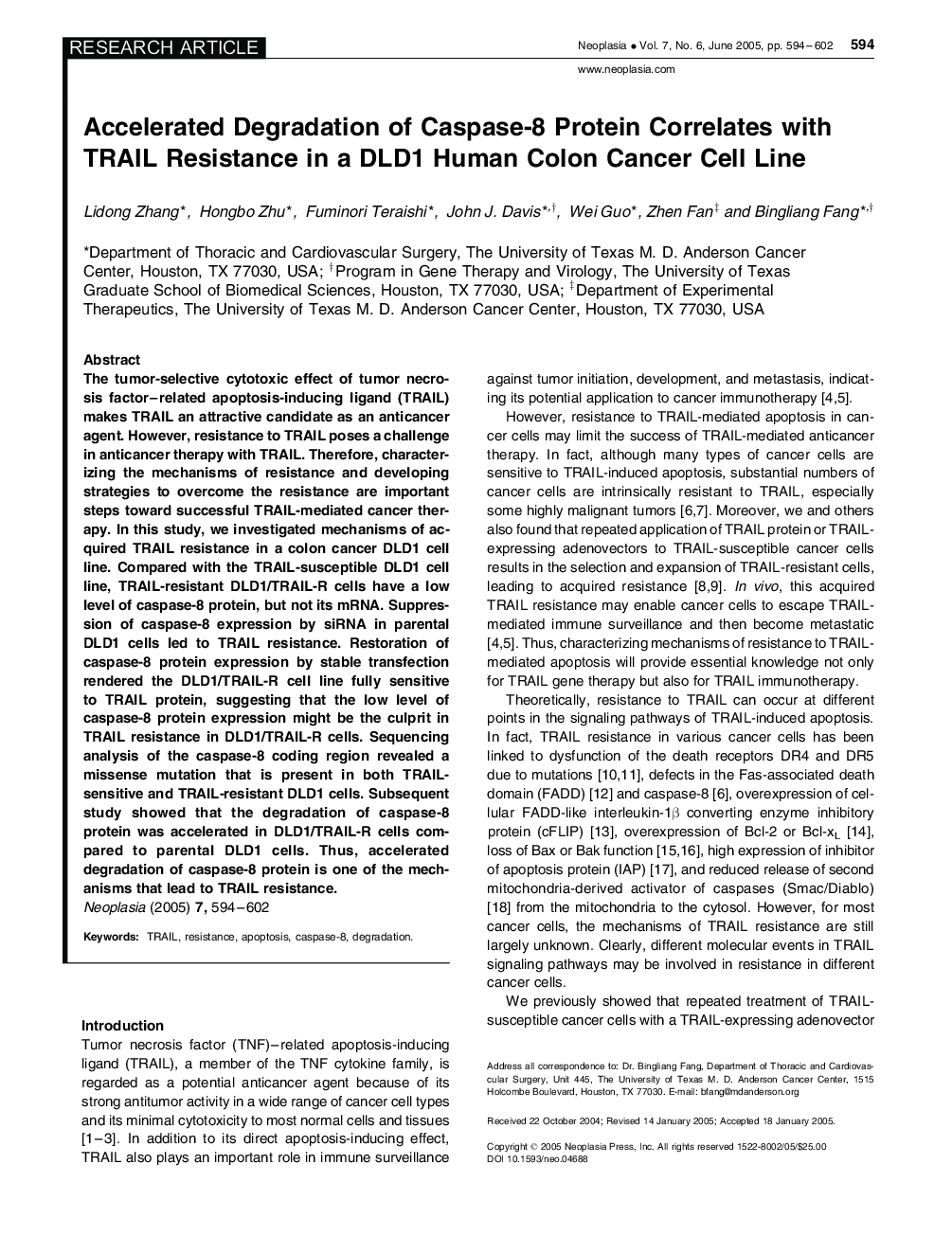| Article ID | Journal | Published Year | Pages | File Type |
|---|---|---|---|---|
| 10915636 | Neoplasia | 2005 | 9 Pages |
Abstract
The tumor-selective cytotoxic effect of tumor necrosis factor-related apoptosis-inducing ligand (TRAIL) makes TRAIL an attractive candidate as an anticancer agent. However, resistance to TRAIL poses a challenge in anticancer therapy with TRAIL. Therefore, characterizing the mechanisms of resistance and developing strategies to overcome the resistance are important steps toward successful TRAIL-mediated cancer therapy. In this study, we investigated mechanisms of acquired TRAIL resistance in a colon cancer DLD1 cell line. Compared with the TRAIL-susceptible DLD1 cell line, TRAIL-resistant DLD1/TRAIL-R cells have a low level of caspase-8 protein, but not its mRNA. Suppression of caspase-8 expression by siRNA in parental DLD1 cells led to TRAIL resistance. Restoration of caspase-8 protein expression by stable transfection rendered the DLD1/TRAIL-R cell line fully sensitive to TRAIL protein, suggesting that the low level of caspase-8 protein expression might be the culprit in TRAIL resistance in DLDl/TRAIL-R cells. Sequencing analysis of the caspase-8 coding region revealed a missense mutation that is present in both TRAILsensitive and TRAIL-resistant DLD1 cells. Subsequent study showed that the degradation of caspase-8 protein was accelerated in DLDl/TRAIL-R cells compared to parental DLD1 cells. Thus, accelerated degradation of caspase-8 protein is one of the mechanisms that lead to TRAIL resistance.
Related Topics
Life Sciences
Biochemistry, Genetics and Molecular Biology
Cancer Research
Authors
Lidong Zhang, Hongbo Zhu, Fuminori Teraishi, John J. Davis, Wei Guo, Zhen Fan, Bingliang Fang,
